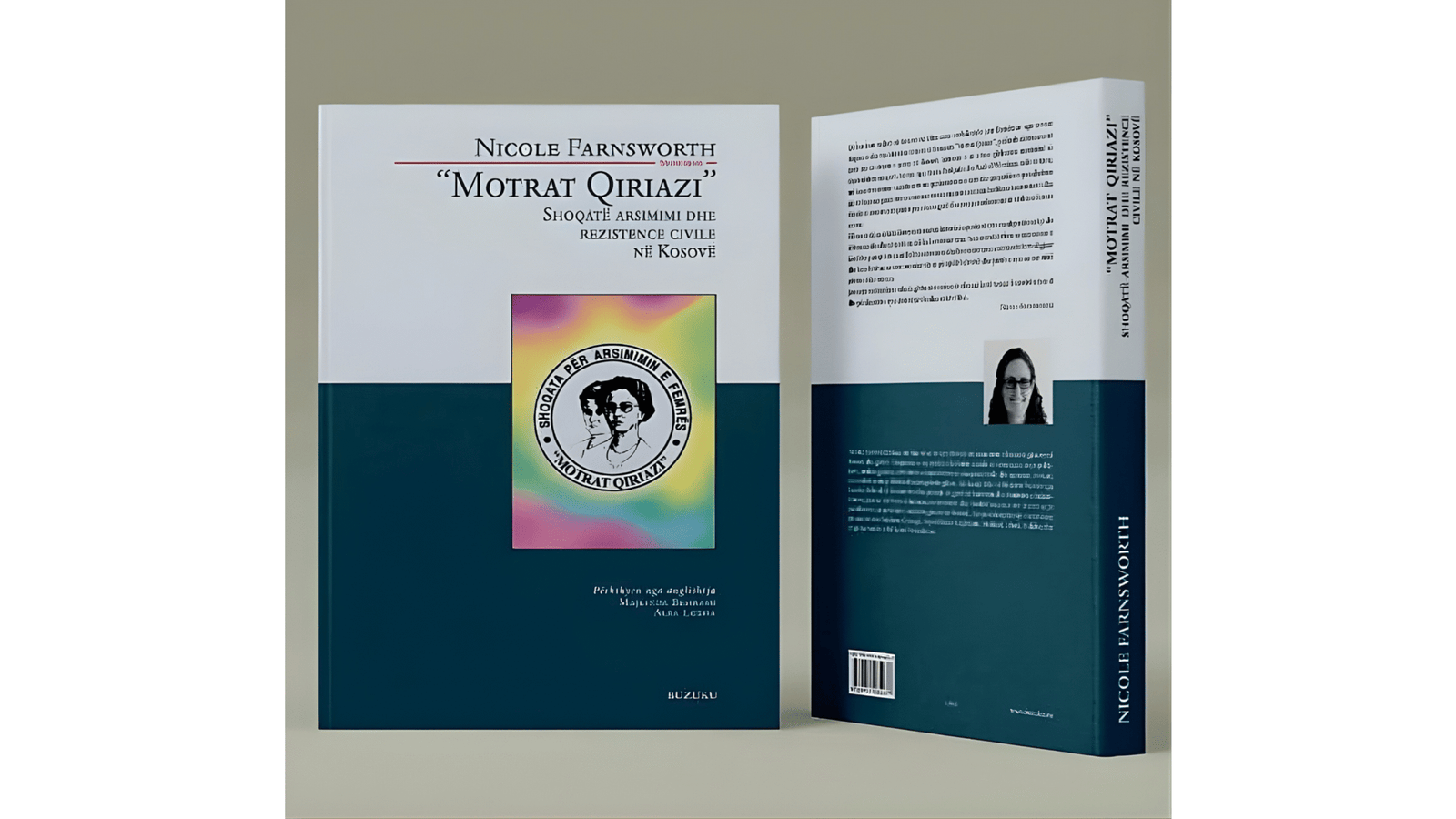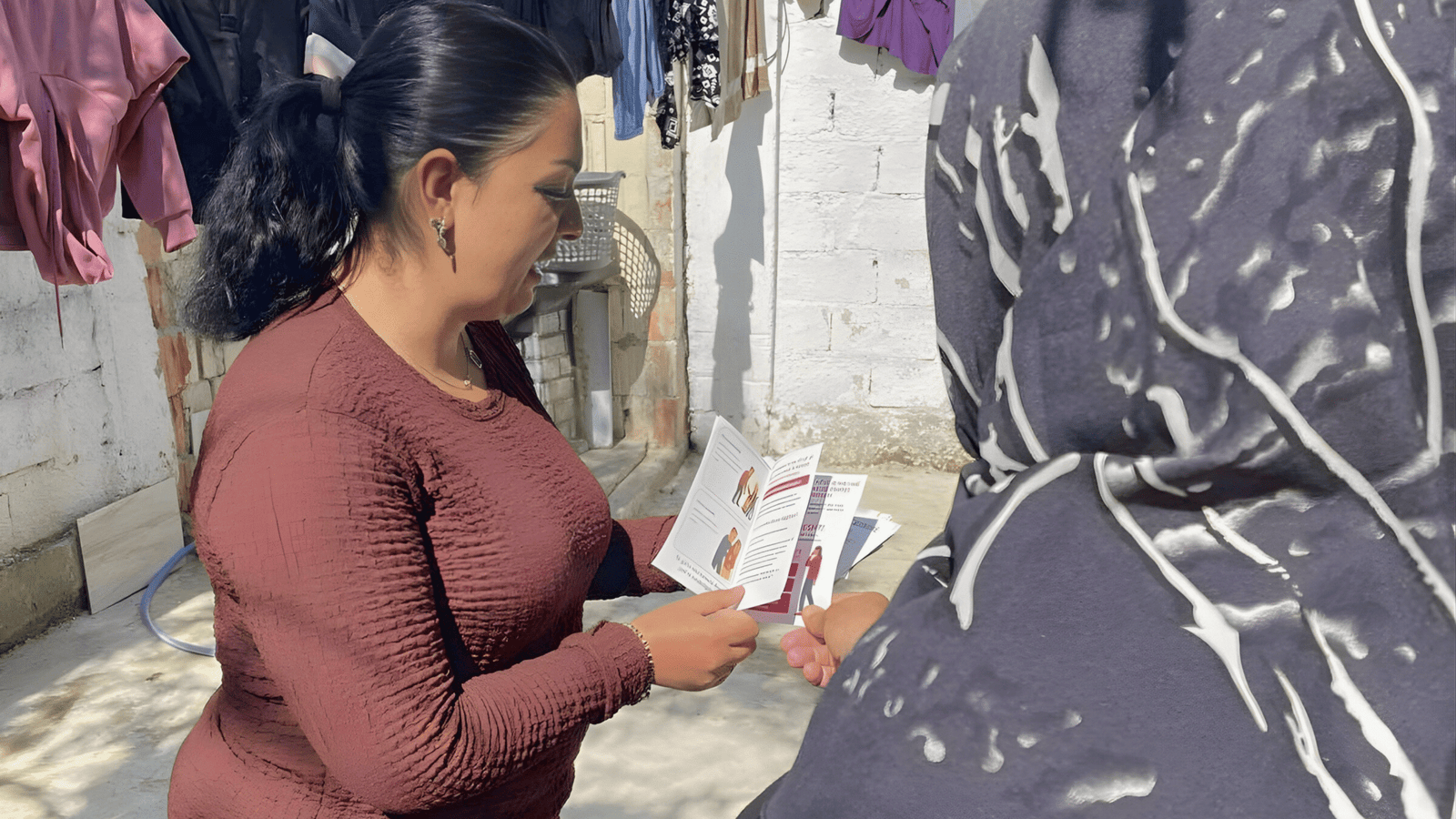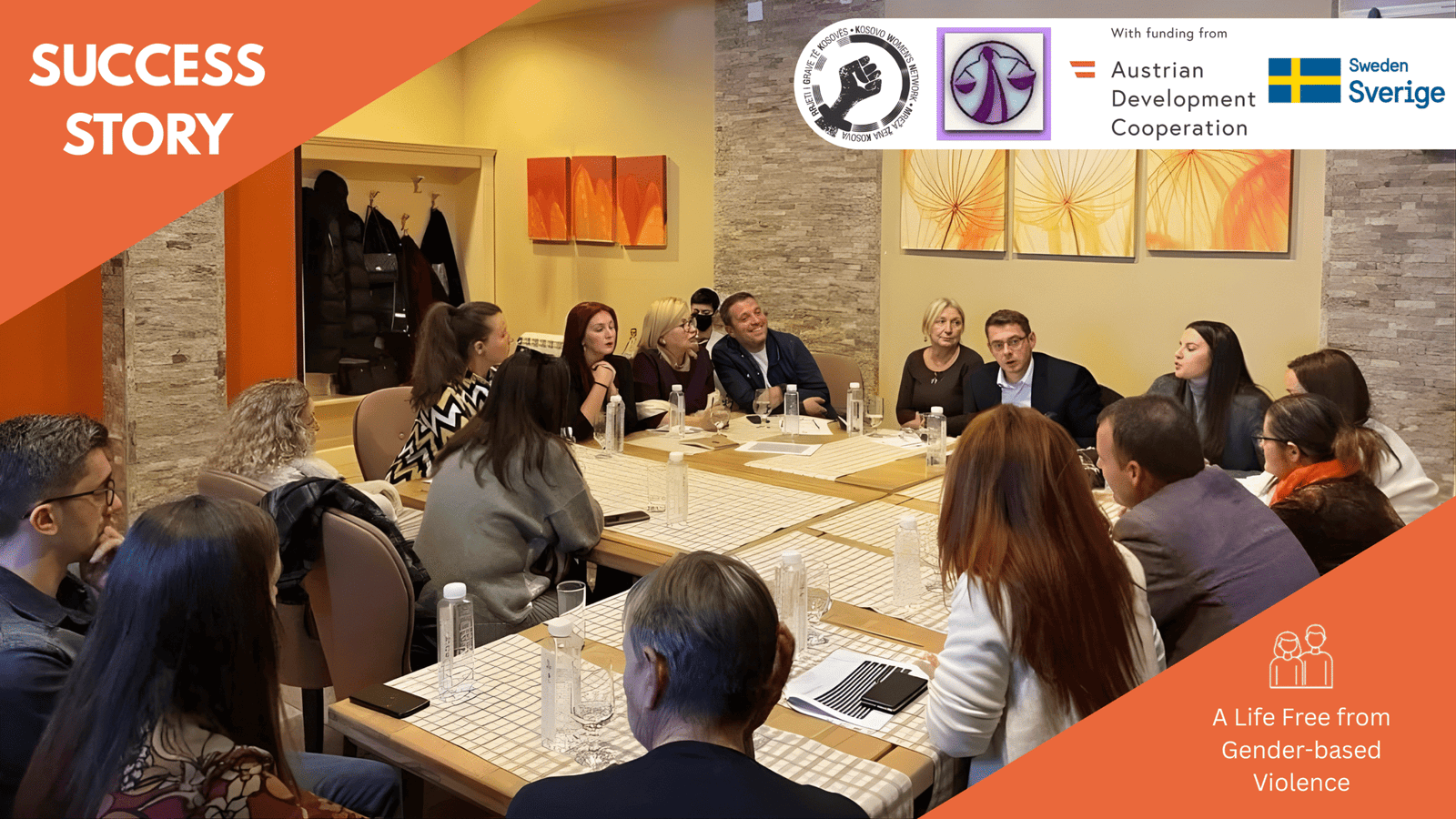Yesterday, civil society representatives met the recently appointed European Parliament Standing Rapporteur on Kosovo Mr. Riho Terras in Prishtina, together with European Parliament advisors and representatives of the European Union (EU) Office in Kosovo. They discussed issues related to civic space, media freedom, minority rights, security, rule of law, gender equality and the EU Accession process. On behalf of the Kosovo Women’s Network (KWN), Nicole Farnsworth participated.
Farnsworth spoke about three key issues related to furthering gender equality in Kosovo. First, on women’s participation in decision-making, women have been under-represented in the Kosovo-Serbia Dialogue. EU Special Representative for the Belgrade-Pristina Dialogue and other regional issues of the Western Balkans Mr. Lajčák, has seldom consulted women and neither the EU or Government of Kosovo have met regularly with WCSOs and diverse women and men in the north and south, on the ground, in accordance with the EU’s commitments to the Women, Peace, and Security Agenda
EU measures generally have impacted civil society and specifically women’s rights organisations’ (WCSOs) participation in the EU Accession process. Where WCSOs previously met with both the EU and Government respectively prior to Stabilisation and Association Committee and Subcommittee meetings, since the measures these meetings have been discontinued. These dialogues should continue regardless of measures, she said, as important for discussing key issues related to accession where civil society can support the process.
In Kosovo, women remain underrepresented in decision-making at all levels. Although the Law on Gender Equality foresees the use of affirmative measures to establish a gender balance in all levels of government and public administration, officials still lack understanding in how to apply both merit-based recruitment and affirmative measures. The EU can provide further clarity and encouragement related to this, such as through the Enlargement Package. She also mentioned the need to institutionalise quality control of the required gender impact analysis by the government and parliament as part of the legislative process; and to ensure reforms related to amending Kosovo’s public finance law and public procurement law are transparent and involve institutionalisation of gender-responsive budgeting, as per commitments under Sustainable Development Goal 5 and the Law on Gender Equality.
Second, related to gender-based violence, Farnsworth observed the progress made by under the leadership of the Minister of Justice on advancing the legal framework. She noted the remaining need to amend the Criminal Code to harmonise it with the new EU Directive on Violence against Women, including clear definitions of various forms of cybercrime. She thanked the European Commission for treating gender-based violence in the Rule of Law chapter in the enlargement package, under judiciary, and asked for next year’s report to address the need for quality, victim-centred services under the social policy chapter as well. In the judiciary, KWN monitoring has shown that low sentencing continues and the “reconciling cases” or “women withdrawing from cases”, though this is not legally possible in criminal cases where ex officio (automatic prosecution) must occur. Further, the central government needs to work better with municipalities to allocate sufficient human resources for Centres for Social Work for treating gender-based violence cases, in accordance with the legal framework.
Third, Farnsworth spoke about women’s economic situation, emphasising that Kosovo has the lowest labour force participation of women in the Western Balkans, with only two in 10 women employed. The Labour Law contributes to gender-based discrimination in hiring as employers seek to avoid paying for maternity leave. It has been in the process of being amended for eight years and again this year was taken off the legislative calendar. It urgently needs to be aligned with the EU Work-Life Balance Directive to increase women’s labour force participation. A second key issue if expanding the availability of childcare and other care services, which is foreseen in the National Development Strategy and Kosovo Reform Agenda, though further efforts are needed to meet the level of demand.
Farnsworth asked for the European Parliament to address these issues in its forthcoming report. Further, she emphasised the need for continued dialogue between the EU and civil society related to the EU Accession process and, specifically, the quality of reforms under the Kosovo Reform Agenda. She also shared two of KWN’s most recent related publications: A Commentary on the Kosovo Report and on the Growth Plan and Reform Agenda for Kosovo.







